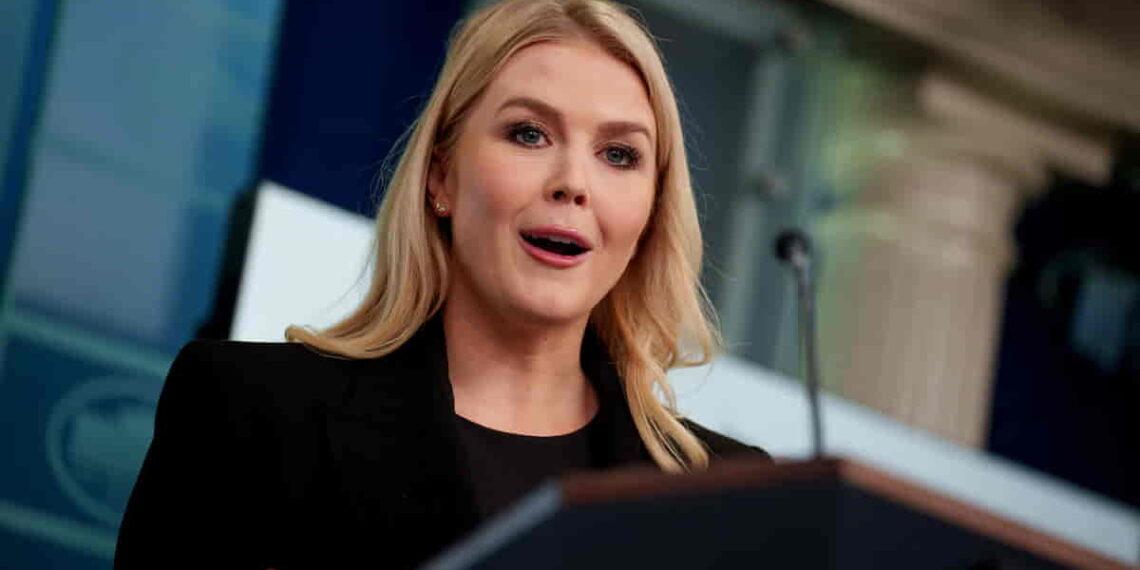Republican Criticism of USAID Targets Politico: A Closer Look at the Controversy
A wave of criticism from Republicans, including Elon Musk, right-wing influencers, and elected officials, recently turned its focus to Politico, amid claims that the news outlet was receiving government subsidies. The accusations centered around subscription payments made by federal agencies like the U.S. Agency for International Development (USAID) to access Politico Pro and other specialized publications. However, the facts tell a different story.
The Origin of the Controversy
The controversy kicked off when a report suggested that Politico had missed payroll, sparking speculation that USAID funding was to blame. Social media users quickly linked the issue to President Trump’s pledge to shut down USAID. One post on X (formerly Twitter) suggested that USAID’s financial support had been cut, causing Politico to struggle with payroll.
By the next day, the situation escalated. A user shared a screenshot from USAspending.gov, claiming that over $8 million had been spent by the federal government on Politico subscriptions in the past year. This set the stage for a wave of conservative criticism.
The White House Responds
By mid-day, White House Press Secretary Karoline Leavitt addressed the issue during a briefing. She confirmed that USAID had been paying for subscriptions to media outlets like Politico, but clarified that the total amount spent was much lower than what had been claimed. According to records from USAspending.gov, USAID had spent only $44,000 on Politico subscriptions in fiscal years 2023 and 2024—far less than the reported $8 million. Leavitt also announced that this funding would be discontinued moving forward.
The Broader Context: Other Media Payments
While USAID’s payments to Politico were small, they were part of a larger trend. Federal agencies often pay for subscriptions to specialized news outlets like Politico, The New York Times, and The Washington Post. These publications provide in-depth coverage that is valuable to government employees, with some subscription fees running into the thousands of dollars per user.
In fact, records show that Republicans in Congress have spent significant sums on Politico subscriptions. For example, last year, the Office of the Speaker of the House paid $9,060, the House Committee on Agriculture spent $84,000, and the House Committee on Energy spent $58,000 on Politico’s products. In total, 38 Republican members of Congress spent over $300,000 on Politico subscriptions during the first nine months of 2024.
Elon Musk and Conservative Claims
On the heels of the controversy, Elon Musk joined the conversation, accusing the federal government of wasteful spending. Responding to a post that claimed 37 FDA employees had paid half a million dollars for Politico Pro subscriptions, Musk tweeted that this was “not an efficient use of taxpayer funds” and suggested the spending would be “deleted.”
Throughout the day, other Republicans and MAGA influencers took to social media, amplifying the narrative that USAID had been funding Politico to the tune of millions of dollars. Rep. Lauren Boebert (R-CO) falsely claimed in a hearing that Politico was laying off employees due to losing USAID funding. Right-wing commentators like Benny Johnson and Rob Smith joined the chorus, calling the situation a massive scandal and accusing Politico of receiving “massive funding” from USAID.
Politico Responds
In response to the mounting criticism, Politico executives quickly sought to clarify the situation. CEO Goli Sheikholeslami and Editor-in-Chief John Harris sent a memo to staff, acknowledging the “spirited discussion” around government subscriptions. They pointed out that much of the day’s commentary was based on “false understandings” and emphasized that Politico had never received direct government subsidies in its 18 years of existence.
They clarified that Politico’s professional subscription business, POLITICO Pro, is primarily supported by private-sector clients, not by government funding. They also noted that the contracts with government agencies were not unique to Politico but were part of a broader trend of federal agencies purchasing media subscriptions.
A Closer Look at the Numbers
It’s important to understand the distinction between the claims made by critics and the reality of the situation. While the federal government does spend millions on subscriptions to news outlets, including Politico, this is far from a subsidy or direct funding for the news organizations themselves. Subscriptions are purchases made by government agencies to access professional and in-depth journalism that serves their needs.
In fact, the federal government’s total spending on Politico Pro and other professional subscriptions amounts to around $16 million across all agencies, including the Office of the National Cyber Director, which signed a $35,000 contract for a Politico Pro Premium subscription just one day before the controversy erupted.
Moving Forward: Will This Affect Politico?
As of the end of the business day on Wednesday, no cancellations of government subscriptions had been reported, and it remains unclear whether the controversy will have lasting consequences for Politico. However, the incident highlights the growing tensions around government spending on media and raises questions about the role of private-sector journalism in serving public needs.
In sum, while Republicans have seized on this issue to criticize the government’s media spending, the actual facts suggest that the situation is more about subscription contracts between the government and professional outlets than any direct government funding of Politico itself. As the debate continues, it remains to be seen how much of a lasting impact this controversy will have on the way government agencies purchase subscriptions to news outlets in the future.
This article was rewritten by JournosNews.com based on verified reporting from trusted sources. The content has been independently reviewed, fact-checked, and edited for accuracy, neutrality, tone, and global readability in accordance with Google News and AdSense standards.
All opinions, quotes, or statements from contributors, experts, or sourced organizations do not necessarily reflect the views of JournosNews.com. JournosNews.com maintains full editorial independence from any external funders, sponsors, or organizations.
Stay informed with JournosNews.com — your trusted source for verified global reporting and in-depth analysis. Follow us on Google News, BlueSky, and X for real-time updates.














